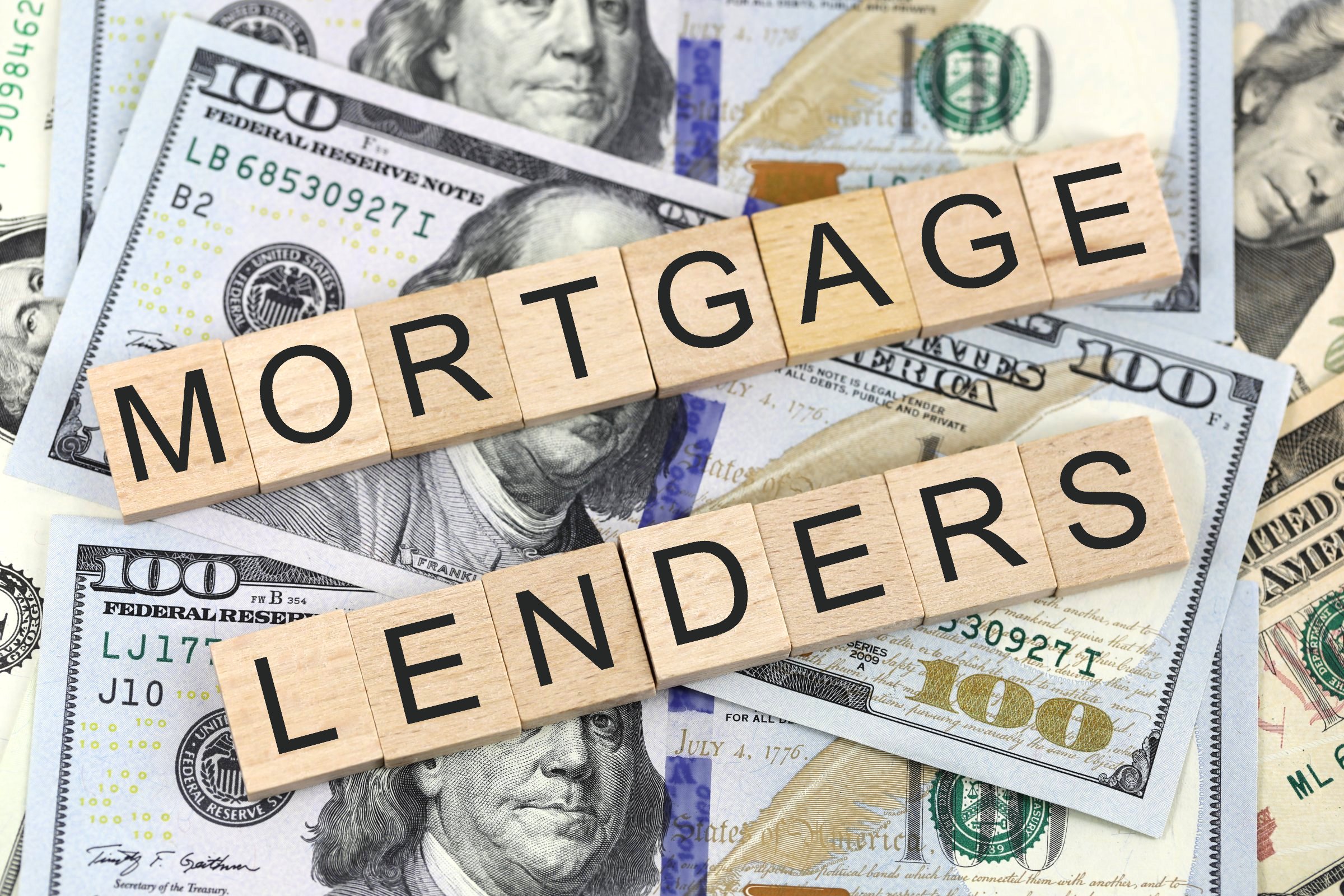From Pre-Approval to Closing: Your Journey With private mortgage lenders savannah ga
Exploring Mortgage Lending: Essential Information for Making Informed Choices
In today's real estate market, recognizing mortgage lending is essential for prospective purchasers. Numerous mortgage types, such as fixed-rate and adjustable-rate, deal distinct advantages and challenges. Rates of interest, financing application processes, and closing expenses also play substantial roles in shaping the home-buying experience. With so numerous elements to examine, traversing this landscape can appear daunting. There are ways to streamline the procedure and make notified choices.
Comprehending Different Types of Home Mortgages
What are the different kinds of home mortgages readily available to buyers? Property buyers can pick from a number of mortgage alternatives to suit their financial situations and objectives. Fixed-rate home loans are prominent for their stability, offering a constant interest price and monthly settlement throughout the loan term. Conversely, variable-rate mortgages (ARMs) start with a lower rates of interest that might rise and fall after an initial period, possibly enhancing total costs. One more option is the FHA car loan, made for low-to-moderate-income customers, which needs a reduced down payment and has more lax debt needs. VA finances, available to veterans and energetic army members, offer positive terms without any down settlement and affordable prices. In addition, USDA loans sustain rural property buyers with low-to-moderate earnings, offering 100% financing in marked locations. Recognizing these mortgage kinds allows property buyers to make enlightened choices based on their distinct financial scenarios.
The Importance of Rate Of Interest
Rates of interest play an essential role in the mortgage lending landscape, exceptionally affecting the price of homeownership. A lower rates of interest can considerably reduce monthly mortgage payments, making it easier for borrowers to handle their funds. On the other hand, greater rates can lead to boosted costs over the life of the funding, possibly pressing homeownership out of reach for many individuals.Additionally, rate of interest are usually connected to more comprehensive financial indicators, such as rising cost of living and work prices, which can vary based upon market problems. This connection means that possible property owners should stay informed regarding current price patterns to make enlightened decisions.Moreover, the sort of mortgage chosen can also affect just how rates of interest are applied, with fixed-rate mortgages giving stability and variable-rate mortgages introducing potential variability. Comprehending these dynamics is necessary for borrowers wanting to browse the complexities of mortgage lending efficiently.
The Mortgage Application Process
Guiding via the mortgage application process can seem intimidating for several potential house owners. The trip typically starts with collecting required documentation, such as earnings statements, income tax return, and debt history. Lenders assess this info to review the candidate's financial stability and creditworthiness.Once the paperwork is collected, individuals submit a formal application, where they detail individual and monetary information. This stage is vital, as it permits lenders to figure out funding qualification and terms. Following the submission, underwriting takes place, throughout which lending institutions conduct a complete review of the application and sustaining documents.After underwriting, the loan provider may ask for added info or clarification. If accepted, the candidate gets a funding offer, which details the mortgage terms. Upon acceptance, shutting procedures commence, leading to the finalization of the lending and the purchase of the building. Comprehending this process can empower possible home owners to browse it with greater self-confidence.
Key Terms Every Buyer Need To Know
Navigating the world of mortgage lending calls for experience with numerous vital terms that can greatly affect the homebuying experience. Comprehending these terms aids buyers browse their choices and make educated decisions.One essential term is "primary," which refers to the preliminary amount borrowed. Very closely associated is "interest," the fee billed by loan providers for obtaining money, usually expressed as a yearly percentage rate (APR) "Escrow" is one more substantial concept, where funds are held by a 3rd party to cover real estate tax and insurance.Buyers must additionally understand "deposit," the upfront quantity paid in the direction of the home purchase, and "equity," the distinction in between the home's market worth and the remaining mortgage balance. Finally, "pre-approval" symbolizes that a lender has actually evaluated a purchaser's monetary circumstance and identified just how much they can obtain, streamlining the purchasing process. Familiarity with these terms equips property buyers in their journey.
Tips for Improving Your Credit Report
Improving one's credit history is essential for securing favorable mortgage terms. Trick actions consist of paying expenses promptly, lowering credit history application, and inspecting credit scores records regularly - Private Mortgage Lenders Savannah GA. These steps can greatly enhance a person's financial profile and raise their chances of getting a mortgage

Pay Costs On Time
Paying expenses in a timely manner stands as one of one of the most efficient strategies for boosting a credit report. Timely payments demonstrate financial obligation and i thought about this dependability to lending institutions, significantly affecting credit history evaluations. Late settlements can cause negative marks on credit report records, which may remain for numerous years, detrimentally impacting loaning capabilities. Developing a constant schedule for expense settlements can assist preserve punctuality; making use of reminders or automated settlements is an efficient method. Additionally, people should prioritize essential expenses, such as bank card, energies, and home mortgages, to protect their creditworthiness. Frequently keeping track of credit reports can likewise help capture any type of inconsistencies or missed out on repayments, enabling punctual activity. Ultimately, constant bill payment is crucial for cultivating a solid credit history account.
Decrease Credit Rating Usage
Minimizing credit application is a necessary action in enhancing one's credit rating. Credit report utilization describes the ratio of bank card equilibriums to their limits, and it significantly affects credit history. Professionals suggest preserving an application rate below 30%, ideally around 10%. To accomplish this, people can pay down existing balances or increase credit history restrictions, given they do not boost investing. Furthermore, individuals must stay clear of closing old charge account, as this can unintentionally raise utilization proportions by lowering overall offered debt. Frequently checking spending behaviors and making constant repayments can better assist in handling credit history application effectively. By implementing these methods, individuals can boost their credit report and boost their eligibility for favorable mortgage lending alternatives.
Check Credit Report Reports Routinely
While several may overlook their credit scores records, on a regular basis examining these papers is important for maintaining a healthy credit history. Debt records have vital info about an individual's credit scores history, consisting of settlement documents, arrearages, and credit rating questions. By evaluating these reports, customers can determine any mistakes or illegal tasks, which can negatively impact their site web scores. It is recommended to examine credit history reports at the very least yearly, as this allows individuals to right errors and take proactive actions to improve their credit reliability. In addition, keeping track of credit report reports can give understanding into aspects influencing ball game, allowing individuals to make enlightened economic decisions. Ultimately, regular vigilance over credit scores records cultivates economic wellness and boosts the probability of safeguarding desirable mortgage lending terms.
Navigating Closing Expenses and Fees
Recognizing closing costs and costs is essential for any individual entering the mortgage process. Each component, from loan provider charges to third-party charges, can considerably affect the overall cost of safeguarding a funding. By contrasting these prices and working out when possible, customers can better handle their economic dedications.
Understanding Closing Price Parts
Handling the intricacies of closing expenses can be daunting for property buyers. Closing prices are made up of different parts, commonly consisting of funding source fees, assessment fees, title insurance coverage, and assessment expenses. These costs differ by loan provider and can rise and fall based on the building area and lending type. Furthermore, house owners might encounter pre paid expenses like real estate tax and homeowners insurance policy that are gathered at closing (Private Mortgage Lenders Savannah GA). It is necessary for buyers to understand these parts to properly estimate the complete amount needed throughout the deal. By damaging down each aspect, homebuyers can make informed economic choices, guaranteeing they are well-prepared for the closing process and decreasing any surprises that may develop at the lasts of securing their mortgage
Comparing Lending Institution Fees
When examining mortgage choices, customers should very carefully compare lending institution costs to ensure they are making an informed choice. Lending institution charges can substantially affect the general cost of a mortgage, consisting of application charges, finance origination costs, and underwriting fees. Each lender might have various frameworks and quantities for these fees, which can cause considerable differences in total closing costs. It is essential for customers to ask for a Car loan Quote from numerous loan providers, as this document lays out all connected costs in a standard style. By analyzing these quotes, debtors can recognize which lender supplies the most affordable terms. Ultimately, an extensive comparison of loan provider charges will aid customers select the very best mortgage alternative that lines up with their financial objectives.
Discussing Closing Costs
Customers typically ignore the potential to discuss closing expenses, which can further influence the cost of a home mortgage. Closing costs usually consist of various charges such as appraisal, title insurance policy, and lawyer charges, which can build up significantly. Understanding these costs is essential, as they can range lending institutions. By getting in-depth estimates, debtors can determine areas for arrangement. It is advisable to talk about costs straight with the loan provider, as some charges may be adaptable. Furthermore, debtors can contrast offers from multiple lenders to take advantage of better terms. Involving an actual estate agent or a home mortgage broker can further enhance the negotiation process, guaranteeing that debtors protect one of the most beneficial closing expenses and total mortgage terms.

Often Asked Concerns
What Papers Are Needed for a Home Loan Application?
The current question addresses the necessary documentation for a home mortgage application. Usually, applicants have to give recognition, earnings confirmation, credit rating, property declarations, and information regarding the property to assure a detailed examination by lenders.
How Does My Work Background Affect Mortgage Authorization?
Employment history substantially influences mortgage authorization, as lenders evaluate task security and earnings consistency. A solid, continual job document boosts credit browse around here reliability, while frequent task adjustments might elevate concerns concerning reliability and financial security.
Can I Get a Mortgage With Student Finances?
The individual's capacity to safeguard a mortgage with student fundings depends upon their general debt-to-income ratio and credit report. Lenders evaluate these aspects, establishing whether the candidate can take care of added economic responsibilities sensibly.
What Is the Distinction Between Pre-Qualification and Pre-Approval?
The difference between pre-qualification and pre-approval hinge on their deepness. Private Mortgage Lenders Savannah GA. Pre-qualification offers a general price quote of obtaining potential based on self-reported details, while pre-approval entails an extensive monetary assessment and debt check by the lending institution

Just how Long Does It Take to Shut on a Mortgage?
The time called for to close on a home loan generally varies from 30 to 45 days. Variables such as loan provider performance, consumer documents efficiency, and residential property assessment can influence this timeline considerably, creating variations in the closing process.